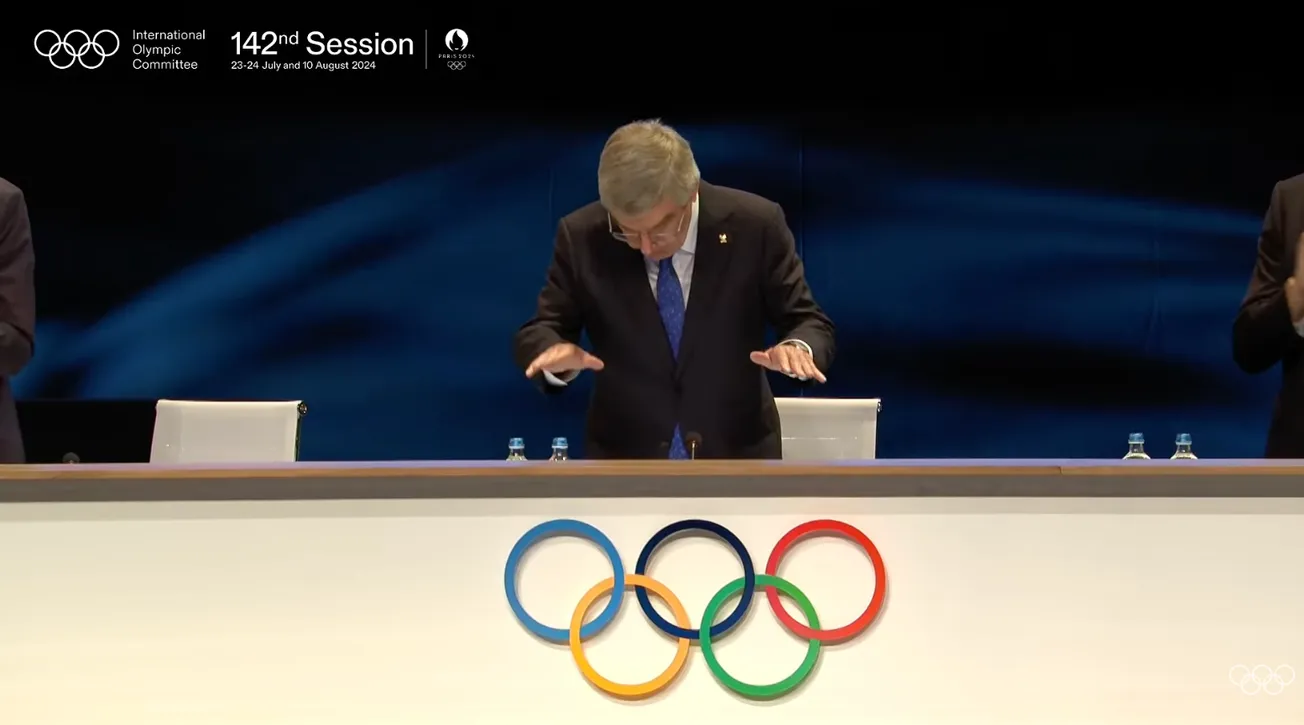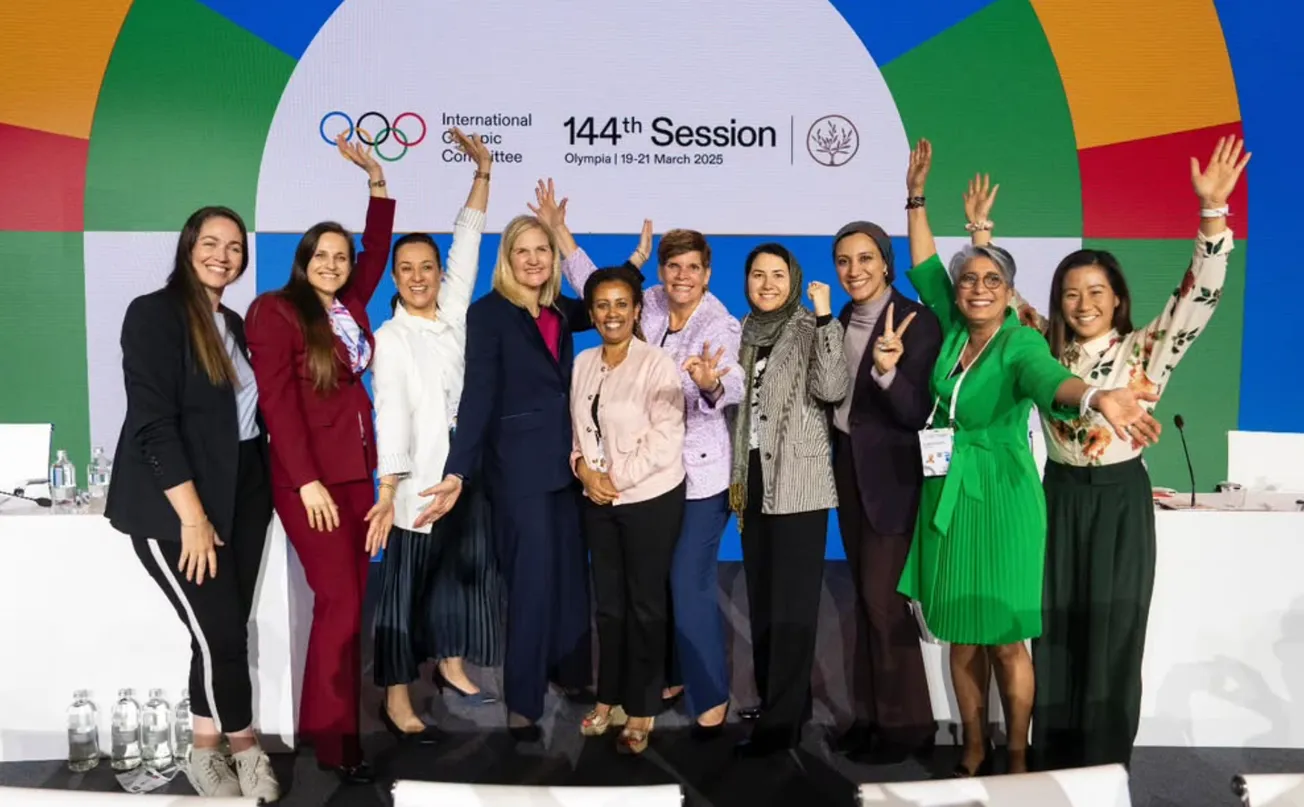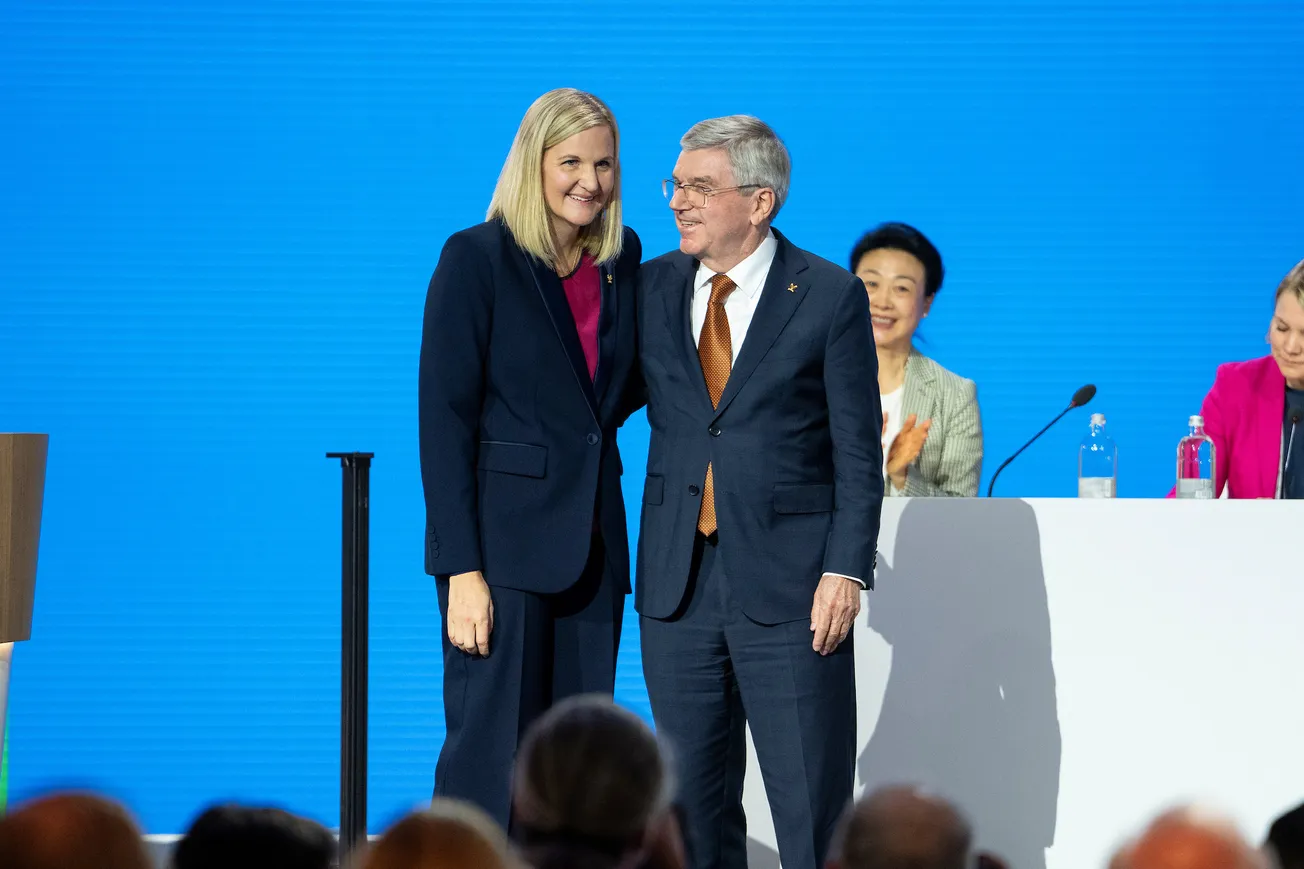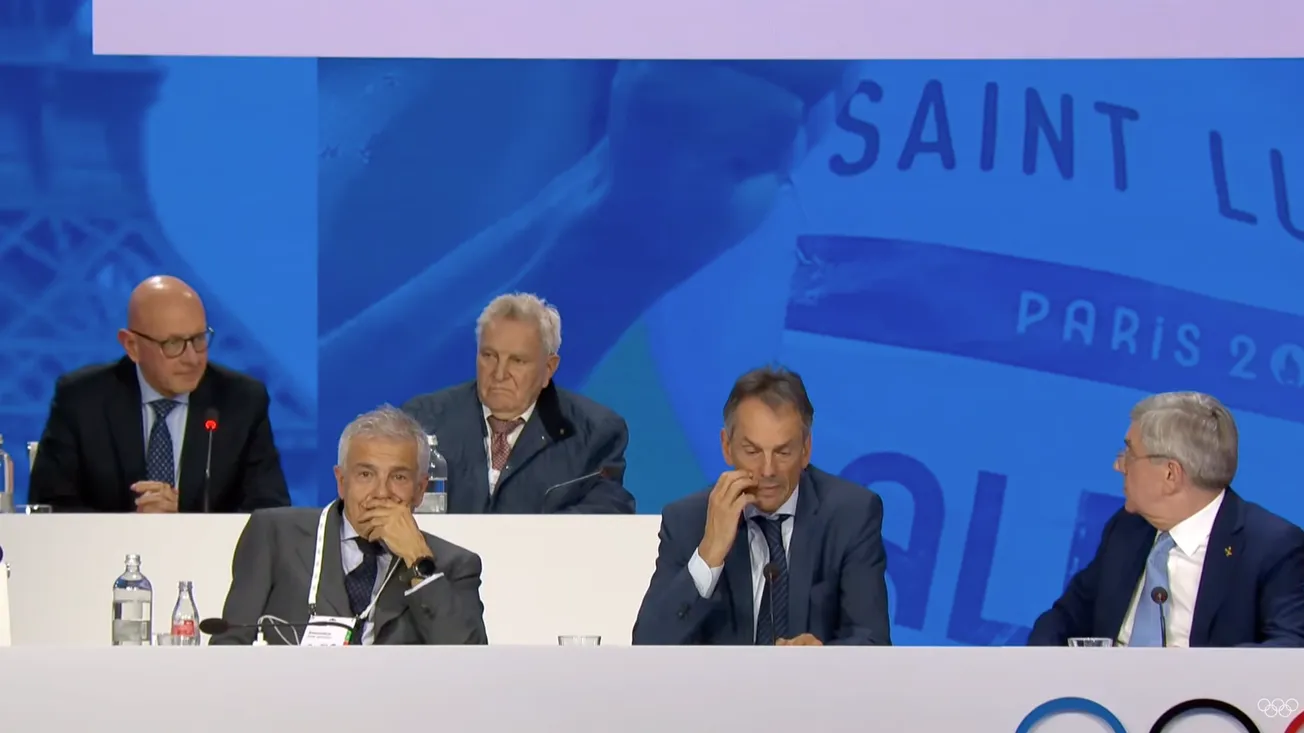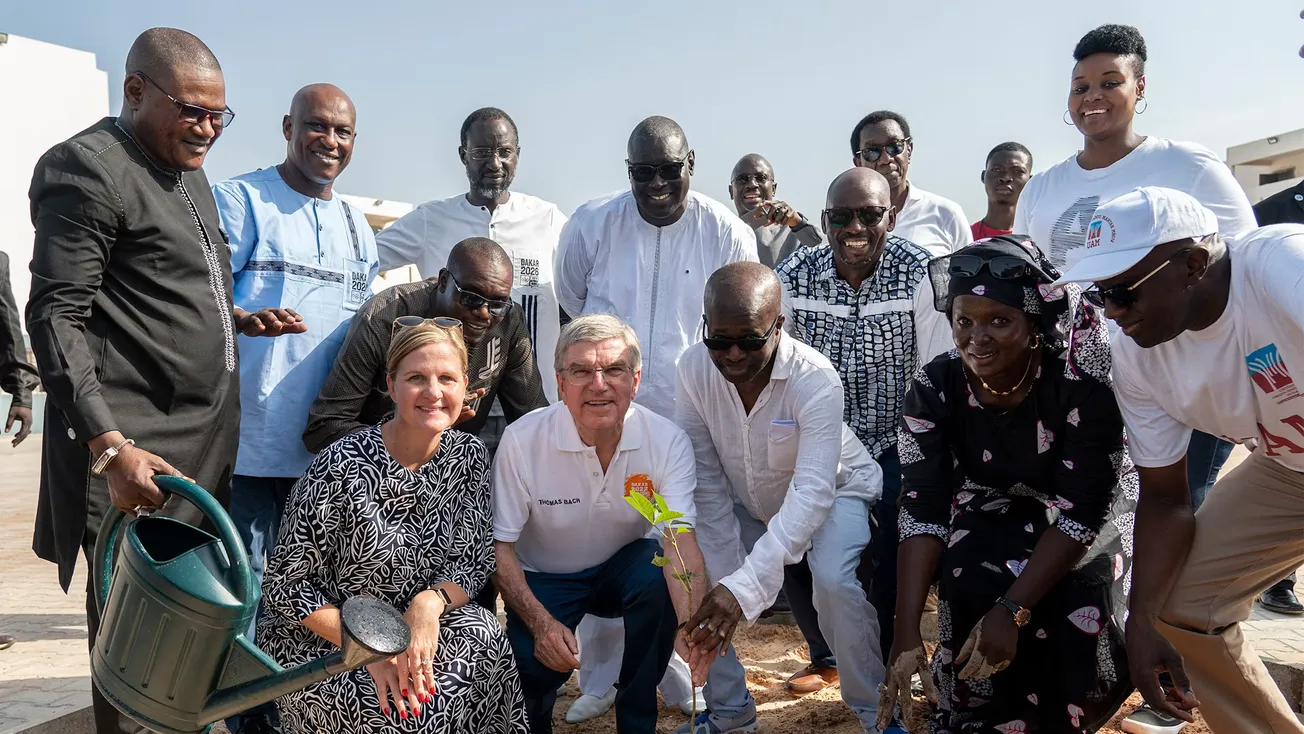PARIS. Thomas Bach has shown greatness and resisted the temptation to have the Olympic Charter amended and remain in office as IOC President for another year. Around 6.45 pm CET, on the third and final day of the 142nd IOC Session, the 70-year-old German announced that he would be stepping down in March 2025.
- This means that the tenth IOC president in the 130-year history of the IOC will be elected at the 143rd session in Greece in March next year. The session is scheduled to take place from 18 to 21 March 2025 in Athens, Greece.
- On 24 June 2025, one day after Olympic Day, the day the IOC was founded, the new president will take over in Lausanne.
It remained unclear why this transitional period was necessary. Until now, newly elected IOC presidents have always taken over immediately.
Bach could have initiated the change to the Charter with three words - if only he had said "I will continue". Everything was in place.
In the past two to three years, all the preparations had been completed - and above all, Bach had ensured in many ways that Sebastian Coe, his former friend and current arch-enemy, was no longer eligible for the IOC presidency.
The details are yet to be discussed. The Ethics Commission's paper will provide further clues.
Bach said that his first thought in Mumbai in 2023, when his claqueurs not only brought an extension of his term of office into play but actually demanded it, was to "reaffirm his loyalty to the Olympic Charter".
If he had actually done so, he could have put an end to all the speculation back then. But he didn't. And in the wake of this hesitation, some presidents in sports federations at continental and global level felt emboldened to loosen their rules and regulations and throw good governance principles overboard.
In its existential crisis in December 1999, the IOC adopted the passages in the Olympic Charter that are still valid today - since then, IOC presidents have been elected for eight years and can be re-elected for another four years.
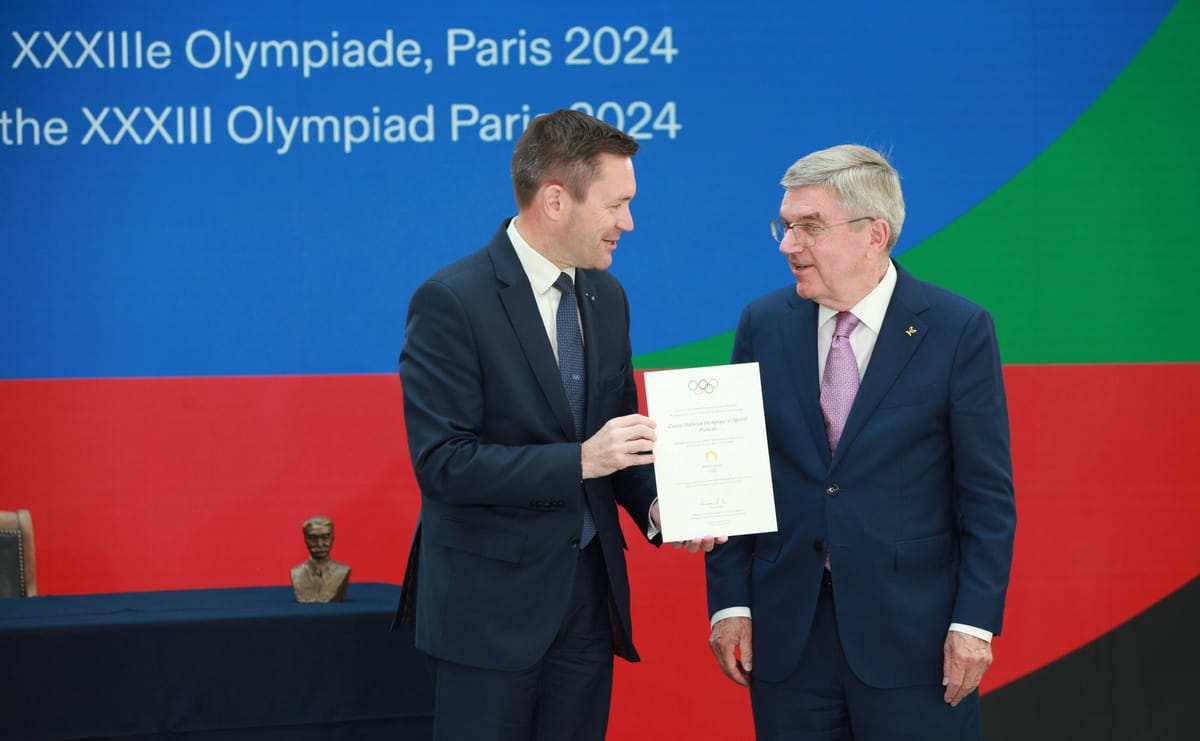
The Spaniard Juan Antonio Samaranch, Bach's great role model, had previously changed the rules several times and ruled from 1980 to 2001. His successor Jacques Rogge held office in rotation for 12 years (2001-2013), just like Bach now (2013-2025).
In his usual flowery words, Bach outlined today in Paris that "respect for each and every one of them, my friends" had made it necessary to "listen". The support and affection had "touched his heart". He now wanted to report on "the result of a deep and extensive discussion".

